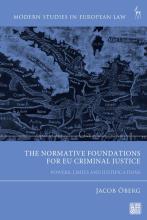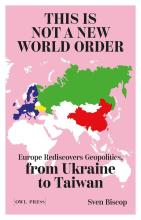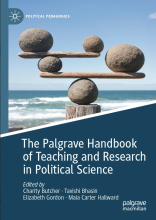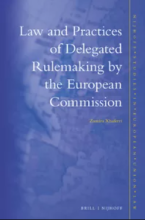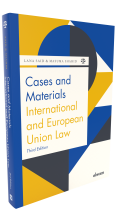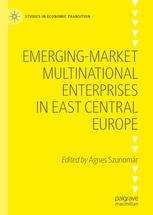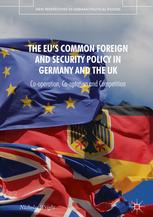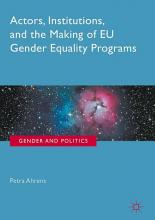Books
Recently published books by UACES members.
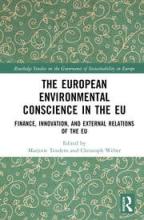
The European Environmental Conscience in the EU: Finance, Innovation, and External Relations of the EU
Marjorie Tendero, Christoph Weber
This book analyses how sustainability affects internal decision-making within the European Union and its external relations in working towards achieving its long-term goal of a climate-neutral Europe by 2050.
Applying the term "European environmental conscience" as the perception of environmental degradation leading to a growing public awareness of the issues, a notion of common responsibility, and European institutions dealing with these growing concerns, the book investigates its emergence as a lever for deeper European integration and in fostering a genuine European identity. Examining policy areas such as green finance, innovation policies, and foreign policy, it reveals the impact these concerns have for other policy fields.
This book is of key interest to scholars and students of environmental economics and politics, sustainability governance, green finance, climate policy, energy policy, and more broadly, to European studies and international relations.

This chapter examines the shortcomings of the ICS under CETA and the proposed MIC in safeguarding states’ regulatory autonomy and granting legal standing to third parties affected by foreign investment. The authors propose addressing these issues by introducing investor obligations through ESG clauses and allowing third parties to bring claims for breaches. They also consider potential challenges, including the impact on arbitration efficiency and limitations within public international law.
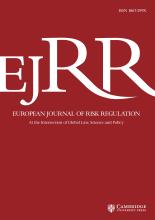
Assessing the Post-Lisbon European Union’s System of Delegated Powers at Fifteen (Delegated Rulemaking in the European Union Fifteen Years Post- Lisbon: Law, Politics and Practice, European Journal of Risk Regulation)
Zamira Xhaferri, Herwig C.H. Hofmann, Florin Coman-Kund
The aim of this article and the ensuing Special Issue is to assess, après fifteen years, the effects on the EU legal and political system of the overhaul of executive delegated powers inaugurated by the Lisbon Treaty. It also puts forward seven overarching reflections revealing some of the core issues and challenges posed by the current stage of development of the post-Lisbon EU system of delegated powers.
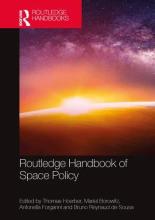
Routledge Handbook of Space Policy
Thomas Hoerber, Mariel Borowitz, Antonella Forganni, Bruno Reynaud de Sousa
This volume offers a comprehensive overview of the field of space policy.
Space is a technology-driven domain, and policy development has accelerated in recent years, at a time when the space economy has begun to show remarkable potential. Thus, this handbook gathers experts from different fields with the aim of (1) offering an overview of the state of play regarding space policy issues, and (2) expanding knowledge about possible future developments.
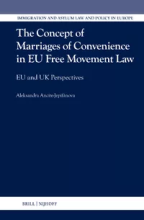
The Concept of Marriages of Convenience in EU Free Movement Law
Aleksandra Ancite-Jepifánova
Over the past two decades, EU Member States have regularly complained about the perceived abuse of EU law via marriages of convenience, allegedly contracted between mobile EU citizens and third-country nationals. During the pre-Brexit years, the UK had been voicing particularly strong concerns about the issue, which ultimately resulted in regulatory changes both at the EU and national level.
In this book, Aleksandra Ancite-Jepifánova pursues two interrelated aims. First, she evaluates the compatibility of EU-level measures addressing marriages of convenience with EU free movement law by focusing on the Citizenship Directive. Second, she examines the regulation of the issue in UK law in so far as it concerns the residence rights of EU citizens and their family members, both pre-and post-Brexit.
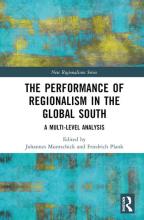
The Performance of Regionalism in the Global South
Johannes Muntschick, Friedrich Plank
The book provides readily accessible, important, and novel information to students and scholars of political science, international relations, EU and European studies, peace and conflict studies, comparative regionalism, interregional and inter-organizational studies, and area studies, and persons interested in specific policy fields such as trade, security, or development policy.
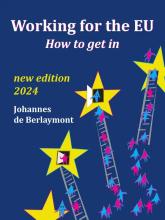
Working for the EU: How to Get In, 2nd Edition 2024
Johannes de Berlaymont
This book is essential reading for anyone wanting to know about the many ways to start and then go on to build a career in the EU public administration. The new edition has been fully updated to take account of major developments such as the new 2024 format of EPSO competitions, the increased availability of internal competitions, and important trends in the types of jobs and career pathways available.
Should the European Union regulate criminal justice? This open access book explores the question forensically, establishing whether a compelling normative justification for EU action in the field exists. It develops an integrated standard based on the perspectives of the effective allocation of regulatory authority between the EU and the Member States, representation-based political theories, and harm-based theories of criminal law. This is a work that will be welcomed not only by EU criminal law scholars, but also by practitioners, judges and policymakers.
If every event in international politics is a turning point, one can only go and lie down, out of sheer dizziness. In reality, we have been living in the same multipolar world for more than three decades. Europeans are only now again getting used to how such a world of great powers works. In the process, the European Union has rediscovered the importance of geopolitics.
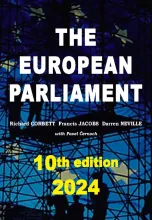
The European Parliament 10th Edition 2024
Richard Corbett, Francis Jacobs, Darren Neville, Pavel Černoch
This fully revised 2024 tenth edition of the leading textbook on the European Parliament systematically and clearly covers every aspect of how the Parliament is elected, its internal structures and procedures, its powers and how it relates to the other EU institutions. It is an essential guide for all those working in or with the Parliament, those hoping to work at the Parliament, students of the EU institutions, and political practitioners.
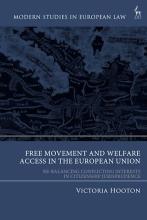
Free Movement and Welfare Access in the European Union
Victoria Hooton
This book assesses the balancing act between EU free movement law, fundamental EU objectives and Member States' concerns regarding their welfare systems. It takes a novel dual approach: namely combining doctrinal analysis of EU citizenship case law with an examination of mobility data. This allows the study to clearly show an imbalance between the representation and protection of these conflicting interests in EU case law.
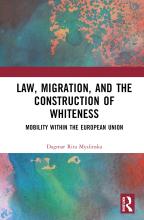
Law, Migration, and the Construction of Whiteness: Mobility Within the European Union
Dagmar Rita Myslinska
This book addresses the hidden dynamics of race within the European Union. This book will appeal to scholars, students and others interested in migration, EU integration and EU citizenship, equality law, race and ethnicity, social policy, and postcolonialism.
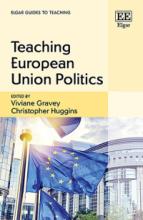
Teaching European Union Politics
Viviane Gravey, Christopher Huggins
Why do we teach EU politics? What should EU politics students learn? What are the practical approaches and techniques to teaching EU politics?
The book offers generalizable tactics to align teaching and research illustrated by specific cases and provides approaches that are sensitive to maximizing efficiency in terms of time and effort vis a vis output.
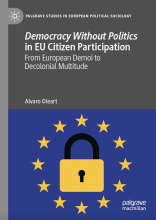
Democracy Without Politics in EU Citizen Participation
Alvaro Oleart
The book puts forward a diagnosis of current debates on EU democratic legitimacy as well as proposing an alternative, anchored in the idea of the ‘decolonial multitude’ as a democratising political imaginary.
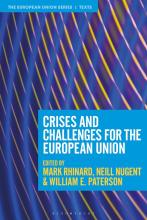
Crises and Challenges for the European Union
Neill Nugent, Mark Rhinard, William E. Paterson
The EU is in crisis. This crisis extends beyond the challenges of Covid-19, Brexit, the Eurozone, and mass migration. It cuts to the core of the EU itself. This text unpacks all dimensions of the EU in crisis, and analyses its implications for the EU and its member states.
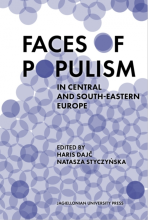
Faces of Populism in Central and South-Eastern Europe
Natasza Styczyńska, Haris Dajč
The book is a result of cooperation between researchers working on a project entitled Populist Rebellion against Modernity in 21st-century Eastern Europe: Neo-Traditionalism and Neo-Feudalism (POPREBEL). The project is funded by the European Commission’s Horizon 2020 scheme and aims to analyse the rise of populism in Central and Eastern Europe.
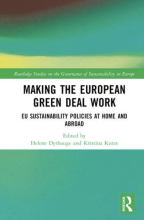
Making the European Green Deal Work
Helene Dyrhauge, Kristina Kurze
This book critically analyses different dimensions in the sustainable transitions outlined by the European Green Deal, focusing on both internal actions and external relations and highlighting the EU’s diverging powers and capabilities in achieving the core objectives.
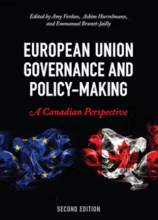
European Union Governance and Policy-Making, Second Edition: A Canadian Perspective
Amy Verdun, Achim Hurrelmann, Emmanuel Brunet-Jailly
European Union Governance and Policy-Making introduces the politics of the European Union (EU) to a student audience. The book is explicitly written for students enrolled in universities in Canada, or other non-EU countries, and builds on their academic background.
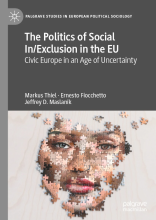
The Politics of Social In/Exclusion in the EU
Markus Thiel, Ernesto Fiocchetto, Jeffrey D. Maslanik
This volume provides an updated analysis of the most significant constitutive aspects for the political sociology of the EU. It examines in detail how civic and political activism regarding the inclusion and integration of gender and sexual minorities, as well as migrants and refugees, have become substantial forces in Europe today.
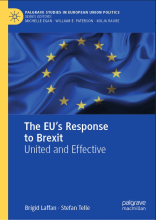
The EU's Response to Brexit
Brigid Laffan, Stefan Telle
This book is the first detailed analysis of how the EU responded to Brexit. It is an important reference point for future studies of the Brexit negotiations. The authors conducted in-depth interviews with key institutional players in Brussels and in several member states to document how the EU handled the first-ever exit of one of its members.
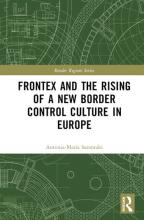
Frontex and the Rising of a New Border Control Culture in Europe
Antonia-Maria Sarantaki
This book examines the rapidly expanding EU agency’s distinct role in EU border control, showing that Frontex is a prominent border control actor that reshapes the EU borders by promoting a new border control culture.
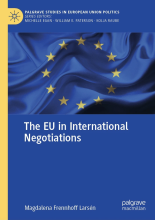
The EU in International Negotiations
Magdalena Frennhoff Larsén
This book, which is aimed at scholars, practitioners, advanced undergraduate and postgraduate students, seeks to contribute to the understanding of the EU as an international negotiator by analysing a number of external policy areas where the EU to a great extent engages internationally through negotiations, including development, trade, enlargement, and withdrawal.
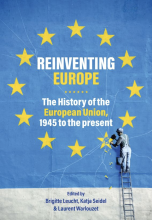
Reinventing Europe
Brigitte Leucht, Katja Seidel, Laurent Warlouzet
The book provides a thorough exploration of the history of the European Union, tracing its development from inception to recent times. It is the first book of its kind to contextualize the history of the EU within the wider frames of European and global history.
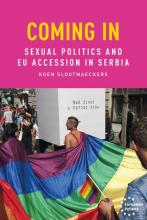
Coming in: Sexual Politics and EU Accession in Serbia
Koen Slootmaeckers
This book interrogates the normative dimensions of the EU enlargement process, with special reference to LGBT politics. Overall, it raises important questions about the politics of Europeanisation, its political and social consequences, as well as to what we consider as progress.
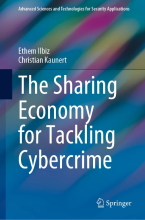
The Sharing Economy for Tackling Cybercrime
Christian Kaunert, Ethem Ilbiz
This book explains Europol’s online sharing platforms efforts in three major cybercrime areas: ransomware, money laundering with cryptocurrencies, and online child sexual exploitation that Europol has already pushed private and public actors to cooperate.
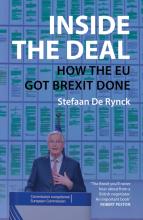
Inside the Deal: How the EU got Brexit Done
Stefaan De Rynck
In this frank and uncompromising account, De Rynck tells the EU's side of the story and seeks to dispel some of the myths and spin that have become indelibly linked to the Brexit process. From the mood in the room to the technical discussions, he gives an unvarnished account of the deliberations and obstacles that shaped the final deal.
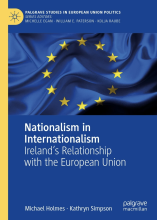
Nationalism in Internationalism
Michael Holmes, Kathryn Simpson
The book examines the Irish-EU relationship based on a theoretical re-interpretation of its narrative and offers a broader perspective considering Irish-EU relations in the years of the financial crisis and Brexit.
This book examines the law and practice of the delegation of rulemaking powers to the European Commission. It combines legal doctrine with empirical research methods to bridge the gap between “law on the books” and “law in action” to fully appreciate the meaning and the impact of the changes post-Lisbon.
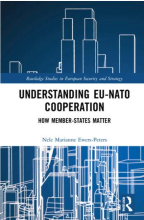
Understanding EU-NATO Cooperation
Nele Marianne Ewers-Peters
The book examines the relationship between the EU and NATO by focusing on the perspective of member states. Highlighting the relevance of member states’ role in shaping EU-NATO relations, it conceptualises interorganisational cooperation and develops a typology of member states based on four types: advocates, blockers, balancers and neutrals.
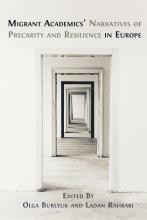
Migrant Academics’ Narratives of Precarity and Resilience in Europe
Olga Burlyuk, Ladan Rahbari
Open Access book by Dr Olga Burlyuk and Dr Ladan Rahbari.
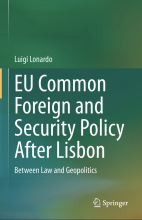
EU Common Foreign and Security Policy After Lisbon
Luigi Lonardo
This strongly interdisciplinary book provides a first tentative evaluation of the role that geopolitics plays in shaping the genesis and functioning of the law of EU Common Foreign and Security Policy (CFSP). It introduces the reader to the geopolitical context of the EU and of its main neighbours, as well as to the legal architecture of CFSP.
This book aims to investigate the conditions under which the European Union and its Member States regulate and remedy human rights violations by corporations from emerging and developing states.
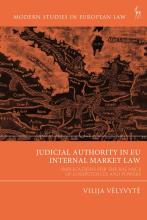
Judicial Authority in EU Internal Market Law
Vilija Velyvyte
This book examines the role of the European Court of Justice in the regulation of the internal market from a competence perspective.
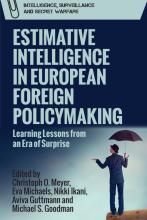
Estimative Intelligence in European Foreign Policymaking
Christoph Meyer, Eva Michaels, Nikki Ikani, Aviva Guttmann, Michael S. Goodman
The first comparative study of estimative intelligence and strategic surprise in a European context, complementing and testing insights from previous studies centred on the United States.
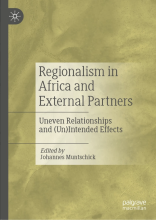
Regionalism in Africa and External Partners
Johannes Muntschick
The book’s two comprehensive mapping studies examine patterns of asymmetric inter-dependence between regionalism in Africa and external partners in Europe.
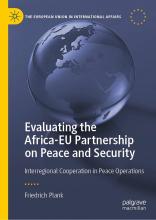
Evaluating the Africa-EU Partnership on Peace and Security
Friedrich Plank
The book provides for a first comprehensive account of the effectiveness of Africa-EU cooperation in peace operations, it focuses on interregional security cooperation within the framework of the African Peace Facility.
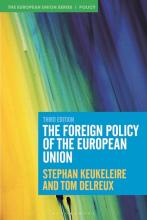
The Foreign Policy of the European Union
Stephan Keukeleire, Tom Delreux
Keukeleire and Delreux demonstrate the scope and diversity of the European Union's foreign policy, showing that EU foreign policy is broader than the Common Foreign and Security Policy and the Common Security and Defence Policy, and that areas such as trade, development, environment and energy are inextricable elements of it.
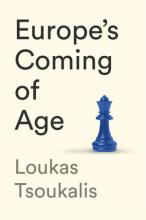
Europe's Coming of Age
Loukas Tsoukalis
European integration has had many successes and failures, Brexit being one of the biggest failures. Despite the setbacks, the EU has been acquiring more functions and members and has now reached a stage where it needs to become a political adult.
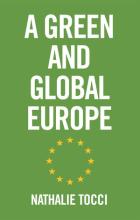
A Green and Global Europe
Nathalie Tocci
In A Green and Global Europe, Nathalie Tocci explains how the unprecedented nature of the current energy transition represents both a unique opportunity and a huge challenge to Europe’s future prosperity.
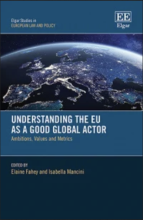
Understanding the EU as a Good Global Actor
Elaine Fahey, Isabella Mancini
This timely book investigates the EU’s multi-faceted development as a global actor, unpacking its legal mission to be a ‘good’ actor as well as exploring the complexities of fulfilling this objective. It elicits critical reflections on the question of ‘goodness’ in EU external relations from descriptive, analytical and normative perspectives, and examines which metrics of actorness are useful in tackling this subject.
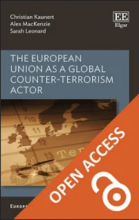
The European Union as a Global Counter-Terrorism Actor
Christian Kaunert, Alex MacKenzie, Sarah Léonard
After the death of Osama Bin Laden and the demise of Al Qaeda, the EU is increasingly threatened by new jihadi terrorist groups such as ISIS, as exemplified by recent terror attacks on Paris, Brussels, Nice, Berlin and Manchester. This book investigates the role of the EU in dealing with such groups as part of its counter-terrorism efforts, by outlining the increasing role of the EU as an external counter-terrorism actor.
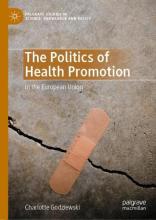
The Politics of Health Promotion
Charlotte Godziewski
The book demonstrates how political obstacles to a more public health-conscious EU are institutional in nature. It argues that ‘Health in All Policies’ is essentially a political project and explores which institutional and ideational obstacles stand in the way of a healthier EU.
Constitutional Change in the European Union
Andrew Duff
Examines key institutional problems currently facing the EU, including Brexit and the Covid-19 pandemic
Provides a comprehensive catalogue of reform proposals that the EU should implement
Written by a former Member of the European Parliament
This book is open access, which means that you have free and unlimited access.
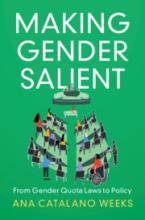
Making Gender Salient
Ana Catalano Weeks
Do gender quota laws – policies that mandate women's inclusion on parties' candidate slates – affect policy outcomes? Making Gender Salient tackles this crucial question by offering a new theory to understand when and how gender quota laws impact policy.
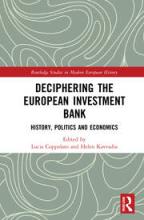
Deciphering the European Investment Bank
Helen Kavvadia, Lucia Coppolaro
Deciphering the European Investment Bank: History, Politics and Economics examines the European Investment Bank (EIB), the European Union’s financial institution and the largest lender and borrower among the International Financial Institutions.
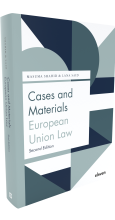
Cases and Materials European Union Law
Masuma Shahid, Lana Said
This compilation consists of key cases and materials in the area of European Union law, selected by the Department of International and European Union law of the Erasmus University Rotterdam to use in their bachelor education.
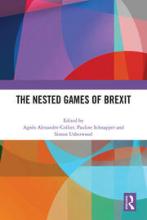
The Nested Games of Brexit
Agnès Alexandre-Collier, Pauline Schnapper, Simon Usherwood
This book offers a novel perspective on the UK’s withdrawal from the European Union, providing insights to the ways in that domestic concerns interact with European policy to produce sometimes counter-intuitive outcomes.
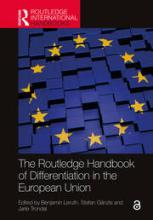
The Routledge Handbook of Differentiation in the European Union
Benjamin Leruth, Jarle Trondal, Stefan Gaenzle
The Routledge Handbook of Differentiation in the European Union offers an essential collection of groundbreaking chapters reflecting on the causes and consequences of this complex phenomenon.

Ideas and European Education Policy, 1973-2020
Marina Cino Pagliarello
This book analyses the transformation of European Education Policy from 1973 to 2020. In doing so, it offers a unique insight into the changes of European education from a predominantly national concern to a supranational policy framework, driven by an economic discourse concerning productivity and employability.

Policy Styles and Trust in the Age of Pandemics
Nikolaos Zahariadis, Evangelia Petridou, Theofanis Exadaktylos, Jörgen Sparf
This book explores the reasons behind the variation in national responses to the COVID-19 pandemic. In doing so, it furthers the policy studies scholarship through an examination of the effects of policy styles on national responses to the pandemic.
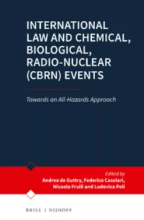
International Law and Chemical, Biological, Radio-Nuclear (CBRN) Events
Andreas de Guttry, Micaela Frulli, Federico Casolari, Ludovica Poli
The volume investigates to what extent the international and European Union legal frameworks applicable to Chemical, Biological and Radio-Nuclear (CBRN) events are adequate to face current challenges.
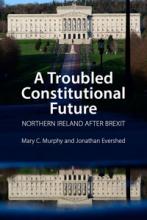
A Troubled Constitutional Future: Northern Ireland after Brexit
Mary C. Murphy, Jonathan Evershed
The UK's decision to leave the EU has opened up huge existential questions for Northern Ireland as it marks its centenary. Constitutional conflict in Northern Ireland had been regarded as largely resolved and settled, but Brexit has altered the wider constitutional framework.
This compilation consists of key treaties, secondary legislation and case law in the area of international and European institutional and constitutional law, selected by the Department of international and European Union law of the Erasmus University Rotterdam to use in their bachelor education.
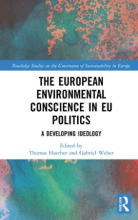
The European Environmental Conscience in EU Politics
Thomas Hoerber, Gabriel Weber
In their book, the editors Thomas Hoerber and Gabriel Weber claim that sustainability has become a European ideology. The chapters in this book show how this has already changed the lives of Europeans.
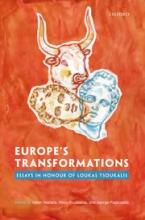
Europe's Transformations
Helen Wallace, Nikos Koutsiaras, George Pagoulatos
Europe's transformations is the unifying theme for this collective work that brings together leading academics and policymakers from across Europe and beyond.

The EU Charter of Fundamental Rights
Steve Peers, Tamara Hervey, Jeff Kenner, Angela Ward
This second edition of the first commentary of the EU Charter of Fundamental Rights in English, written by experts from several EU Member States, provides an authoritative but succinct statement of how the Charter impacts upon EU, domestic and international law.
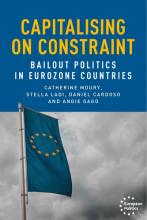
Capitalising on Constraint
Catherine Moury, Stella Ladi, Daniel Cardoso, Angie Gago
This book is an essential analysis of what really happens behind closed doors during and after a bailout. his book explores the constraints on national executives in the five bailed out countries of the Eurozone during and beyond the crisis, from 2008 to 2019.
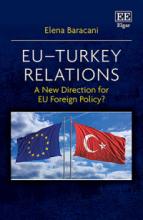
EU–Turkey Relations
Elena Baracani
The book analyses EU foreign policy with Turkey over the last decade by uncovering how its internal functioning and structural context affect the European Union’s decisions. Acknowledging that EU enlargement policy is part of a broader foreign policy framework, which includes also other domains, Elena Baracani adopts a unique approach, combining more actor-oriented factors with structural factors to analyse EU–Turkey Relations at national, multinational and international levels.
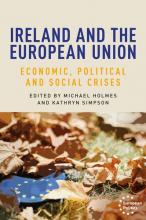
Ireland and the European Union: Economic, political and social crises
Kathryn Simpson, Michael Holmes
This book examines how Ireland's relationship with the EU was affected by a succession of crises in both the Republic of Ireland and Northern Ireland. The financial crisis, the Brexit crisis and the migration crisis were not of equal significance on the island of Ireland.
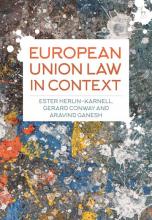
European Union Law in Context
Aravind Ganesh, Ester Herlin-Karnel, Gerard Conway
This textbook provides an explanatory and contextual view of EU law and its impact in a simple and easily accessible yet analytical manner. It illustrates the power struggles behind a given EU law act, to allow for full understanding of how it developed.
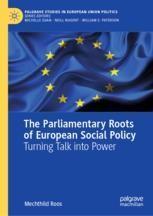
The Parliamentary Roots of European Social Policy
Mechthild Roos
This book shows that the EP was much more influential in shaping Community policy in the early years of the integration process than either the founding Treaties or most existing scholarship would allow.

The Politics of Legal Expertise in EU Policy-Making
Päivi Leino-Sandberg
For more than ten years Päivi Leino-Sandberg was a part of the invisible community of EU legal advisers, and participated in the exercise of their power. In this book, she shares her insights about how law and lawyers work in the EU institutions, and what their role and impact is on EU decisions from within the decision-making structure.
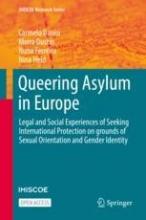
Queering Asylum in Europe
Carmelo Danisi, Moira Dustin, Nuno Ferreira, Nina Held
This two-volume open-access book offers a theoretically and empirically-grounded portrayal of the experiences of people claiming international protection in Europe on the basis of their sexual orientation or gender identity (SOGI).

Secular Power Europe and Islam
Sarah Wolff
Through an exploration of Europe’s secular identity, an identity that is seen erroneously as normative, author Sarah Wolff shows how Islam confronts the EU’s existential anxieties about its security and its secular identity.
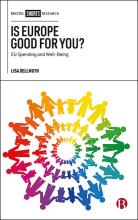
Is Europe Good for You?
Lisa Dellmuth
Throughout the history of European integration, economic wealth has increased to the benefit of citizens in the European Union (EU). This book investigates how the EU can use its regional funding programmes in ways that increase citizen well-being.
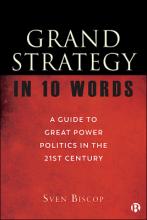
Grand Strategy in 10 Words
Sven Biscop
This book introduces ten key terms for analysing grand strategy and shows how the world’s great powers – the United States, China, Russia and the European Union (EU) – shape their strategic decisions today.
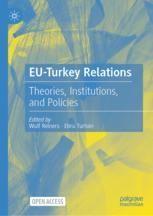
EU-Turkey Relations - Theories, Institutions, and Policies
Ebru Turhan, Wulf Reiners
Open Access - This book explores the new complexities and ambiguities that epitomize EU-Turkey relations. It provides full access to a comprehensive understanding of the multifaceted relationship through three entry points: Theories and Concepts, Institutions, and Policies.
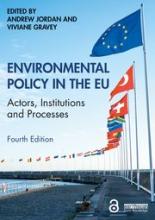
Environmental Policy in the EU
Viviane Gravey, Andrew Jordan
The European Union (EU) has a hugely important effect on the way in which environmental policies are framed, designed and implemented in many parts of the world, but especially Europe. The new edition of this leading textbook provides a state-of-the-art analysis of the EU’s environmental policies.

Hitler's Cosmopolitan Bastard
Martyn Bond
The story of the Austro-Japanese count - politician and author of the manifesto Pan-Europa - who blazed a trail to European integration.
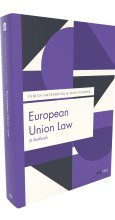
European Union Law
F. Amtenbrink, H.H.B. Vedder
A Textbook provides a broad overview of the main aspects of the law of the European Union. It is aimed both at beginning and advanced students who will find this book a useful guide to the law of the European Union.
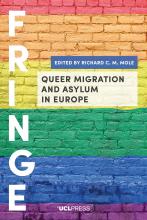
OPEN ACCESS: Queer Migration and Asylum in Europe
Richard C. M. Mole
Europe is a popular destination for LGBTQ people seeking to escape discrimination and persecution. Yet, while European institutions have done much to promote the legal equality of sexual minorities and a number of states pride themselves on their acceptance of sexual diversity, the image of European tolerance and the reality faced by LGBTQ migrants and asylum seekers are often quite different.

Business Lobbying in the European Union
David Coen, Alexander Katsaitis, Matia Vannoni
At a time when Europe and business stand at crossroads, this study provides a perspective into how business representation in the EU has evolved and valuable insights into how to organize lobbying strategies and influence policy-making.
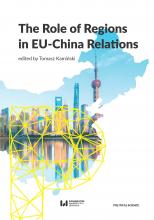
The Role of Regions in EU-China Relations
Tomasz Kamiński
Open Access - The present book maps Sino-European relations at the regional level and presents a detailed analysis of subnational contacts in the six analysed EU member states, illustrated by case studies of interesting regions from each country.
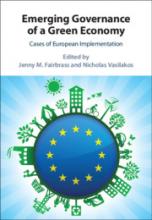
Emerging Governance of a Green Economy
Jenny M. Fairbrass, Nicholas Vasilako
This book explores the measures being trialled at various levels of governance in the European region to reduce the adverse impacts of human behaviour on the environment whilst simultaneously addressing society's economic and social needs as part of the intended shift towards a 'green' economy.
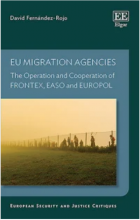
EU Migration Agencies - The Operation and Cooperation of FRONTEX, EASO and EUROPOL
David Fernández-Rojo
This insightful book analyzes the evolution of the operational tasks and cooperation of the European Border and Coast Guard Agency (FRONTEX), the European Asylum Support Office (EASO) and the European Union Agency for Law Enforcement Cooperation (EUROPOL).
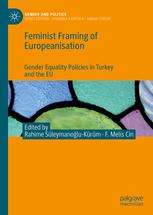
Feminist Framing of Europeanisation
Rahime Süleymanoğlu-Kürüm, Melis Cin
It not only offers a feminist reading of Europeanisation in general, but also discusses the process of Europeanisation and de-Europeanisation of Turkey with regard to changes in gender policy.
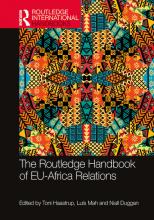
The Routledge Handbook of EU-Africa Relations
Toni Haastrup, Niall Duggan, Luís Mah
This handbook provides a comprehensive overview of the changing dynamics in the relationship between the African continent and the EU provided by leading experts in the field.
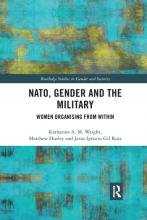
NATO, Gender and the Military
Katharine A. M. Wright, Matthew Hurley, Jesus Ignacio Gil Ruiz
This book examines NATO's engagement with gender issues through its military structures.

Immortal Contracts in Europe
Aurelia Colombi Ciacchi, Chantal Mak, Zeeshan Mansoor
This book brings together a group of renowned contract lawyers to analyse how their own legal systems deal with twelve cases of morally dubious agreements.
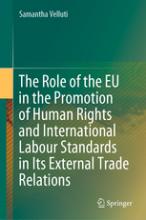
This book represents a significant and timely contribution to the copious literature of the EU as a global actor providing new insights and fresh perspectives into the promotion of human rights and international labour standards.
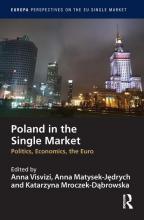
Poland in the Single Market
Anna Visvizi, Katarzyna Mroczek-Dąbrowska, Anna Matysek-Jędrych
This volume’s objective is to remind society, old and young, researchers, scholars and practitioners, that Poland’s success is an outcome of well-thought out and bold structural reforms implemented in a swift and timely manner, of society’s support for these reforms, and of third actors’ benign assistance.
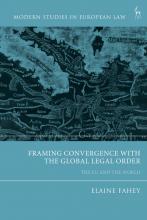
Framing Convergence with the Global Legal Order
Elaine Fahey
This interdisciplinary book explores the concept of convergence of the EU with the global legal order.
The rise of multinational enterprises (MNEs) from emerging markets is topical, important and poses a number of questions and challenges that require considerable attention in the future from academia as well as business management.

Tourism and Brexit: Travel, Borders and Identity
Hazel Andrews
This book is the first to explore the relationship between tourism and Brexit from a social science perspective.

Outside the EU - Options for Britain
Martin Westlake
Martin Westlake brings together distinguished contributors to examine these various options, real and potential, and to consider whether they would offer a workable solution for the continued relationship between the EU and post-Brexit Britain.
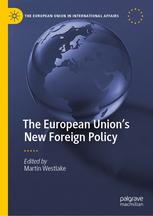
The European Union’s New Foreign Policy
Martin Westlake
This volume brings together senior practitioners and academic specialists to consider how the EU’s new foreign policy has been evolving and how the various actors are maintaining the holistic approach intended by the draftsmen of the 2009 Lisbon Treaty.
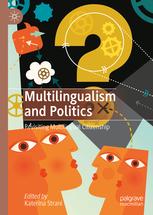
Multilingualism and Politics
Katerina Strani
This edited book makes a significant contribution to the relatively under-explored field of multilingualism and politics, approaching the topic from two key perspectives: multilingualism in politics, and the politics of multilingualism.
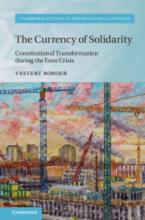
The Currency of Solidarity
Vestert Borger
This book argues that the constitution of the EU has transformed, which occurs when constitutions change without amendment. The transformation is characterized by a broadening of the currency union's stability conception from price stability to also financial stability. Using solidarity as a lens, the book conceptualises the unity of the member states and analyses how this was preserved during the crisis.
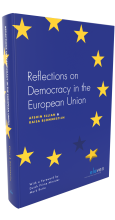
Reflections on Democracy in the European Union
Afshin Ellian, Raisa Blommestijn
Reflections on Democracy in the European Union, with a foreword by Dutch Prime Minister Mark Rutte, is a unique volume that offers an interdisciplinary approach on EU democracy, law and politics from economic, juridical and philosophical perspectives. It is divided in three parts and deals with EU’s contemporary challenges, its historical development, democracy and rule of law.
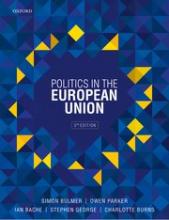
Politics in the European Union
Simon Bulmer, Owen Parker, Ian Bache, Stephen George, Charlotte Burns
An expert author team examine in detail the theory and history behind the EU, before moving on to explore the institutions and policies at work, giving readers a valuable insight to this complicated political body.
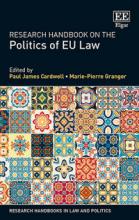
Research Handbook on the Politics of EU Law
Paul J. Cardwell, Marie-Pierre Granger
Offering a wealth of thought-provoking insights, this topical Research Handbook analyses the interplay between the law and politics of the EU and examines the role of law and legal actors in European integration.
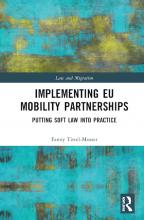
Implementing EU Mobility Partnerships
Fanny Tittel-Mosser
This book assesses the effectiveness of Mobility Partnerships and their consequences for third countries.
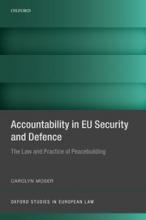
Accountability in EU Security and Defence
Carolyn Moser
This title offers a comprehensive legal analysis and empirical study of accountability concerning the Union's peacebuilding endeavours, also referred to as civilian crisis management.
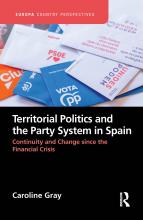
Territorial Politics and the Party System in Spain
Caroline Gray
Across Western Europe, the global financial crisis of 2008 and its aftermath not only brought economic havoc but also, in turn, intense political upheaval.

Memory and the future of Europe
Peter J. Verovsek
Memory and the future of Europe examines the role of collective memory in the origins and development of the European Union. It traces Europe's political, economic and financial crisis to the loss of the remembrance of the rupture of 1945.
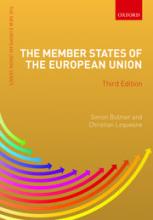
The Member States of the European Union
Simon Bulmer, Christian Lequesne
A unique approach combines in-depth analysis of individual member states with a broader examination of the political, social and economic impact of Europeanization.
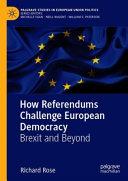
How Referendums Challenge European Democracy
Richard Rose
This book explains how citizens are using referendums to challenge decisions taken by the European Union.
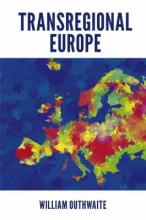
Transregional Europe
William Outhwaite
Transregional Europe bridges the gap between stereotypical generalisations about southerners, the 'wild East', and so on and the constructions assembled by national and transnational policy-makers.

The Jewish Contribution to European Integration
Sharon Pardo, Hila Zahavi
This edited collection seeks to present a valuable guide to the Jewish contribution to the European integration process, and to enable readers to obtain a better understanding of the unknown Jewish involvement in the European integration project.
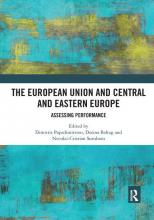
The European Union and Central and Eastern Europe: Assessing Performance
Dimitris Papadimitriou, Dorina Baltag, Neculai-Cristian Surubaru
The role of the European Union (EU) in Central and Eastern European countries (CEECs) and its ‘near abroad’ has attracted much scholarly attention over the past few years.

Legal Challenges to the Far Right
Natalie Alkiviadou
The work considers the international and European obligations of the UK in the realm of challenging the far-right and assesses the extent to which it adheres to them.

On Brexit: Law, Justices and Injustices
Elaine Fahey, Tawhida Ahmed
Timely and engaging, this topical book examines how Brexit is intertwined with the concepts of justice and injustice. The book aims to engage with the methodology, lexicon and explicitness of analytical perspectives in relation to Brexit.
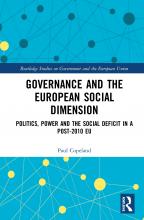
Governance and the European Social Dimension
Paul Copeland
Providing a comprehensive and authoritative analysis of the impact of the Eurozone crisis on the European social dimension since 2010 this book focusses on developments in five policy areas.

Habermas global - Wirkungsgeschichte eines Werks
Luca Corchia, Stefan Müller-Doohm, William Outhwaite
Die internationale Wirkungsgeschichte des herausragenden Philosophen und öffentlichen Intellektuellen wird hier von über 40 Autorinnen und Autoren aus mehr als 20 Sprach- und Wissenschaftskulturen beleuchtet.
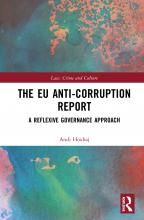
The Eu Anti-corruption Report
Andi Hoxhaj
This book analyses the development of anti-corruption as a policy field in the European Union with a particular focus on the EU Anti-Corruption Report.
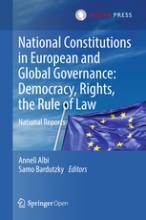
National Constitutions in European and Global Governance: Democracy, Rights, the Rule of Law
Anneli Albi, Samo Bardutzky
This two-volume book, published open access, brings together leading scholars of constitutional law from twenty-nine European countries to revisit the role of national constitutions at a time when decision-making has increasingly shifted to the European and transnational level.
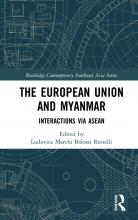
The European Union and Myanmar
Ludovica Marchi
This book analyses European foreign policy as the activity of the European Union (EU) as a global actor and explores its efforts to raise its visibility in Southeast Asia through its relations with the Association of Southeast Asian Nations (ASEAN) and Myanmar.
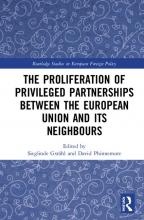
The Proliferation of Privileged Partnerships between the European Union and its Neighbours
David Phinnemore, Sieglinde Gstöhl
This edited volume provides a timely analysis of the European Union’s ‘privileged’ partnerships with neighbouring countries, identifying key points of comparison.
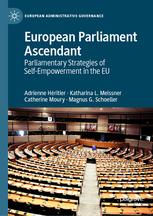
European Parliament Ascendant: Parliamentary Strategies of Self-Empowerment in the EU
Adrienne Héritier, Katharina L. Meissner, Catherine Moury, Magnus G. Schoeller
Discusses the European Parliament’s strategies of self-empowerment over time, across cases of new institutional prerogatives and in substantive policy areas. Compiles for the first time an encompassing list of EP strategies and proceeds to theorise and assess the relevant causes of their success and failure.

European Identities in Discourse
Franco Zappettini
Based on empirical research, this book closely analyses how European identities are discursively produced. It focuses on discourse from members of a civic association active in promoting democracy and attempting participation in the transnational public sphere.
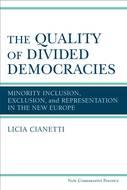
The Quality of Divided Democracies
Licia Cianetti
The book uses rich comparative data to tackle the vital questions of what determines a democracy’s level of inclusiveness and the ways in which minorities can gain access to the policy-making process.

The Far-Right in International and European Law
Natalie Alkiviadou
In light of this current reality, this book critically assesses the international and European tools available for States to regulate the far-right.

Contemporary European Security
David J. Galbreath, Jocelyn Mawdsley, Laura Chappell
The book explores the complex European security architecture and introduces students to the empirical, theoretical and conceptual approaches to studying the subject.
This book argues that there is an inherent relationship between EU fundamental rights and EU citizenship: they both have the same objective of guaranteeing protection for the individual.
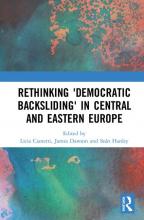
Rethinking 'Democratic Backsliding' in Central and Eastern Europe
Seán Hanley, James Dawson, Licia Cianetti
This book seeks to inject fresh thinking into the debate on democratic deterioration in Central and Eastern Europe (CEE), viewing ‘democratic backsliding’ through the prism of a range of cases beyond Hungary and Poland, to redress the imbalance in current scholarship.
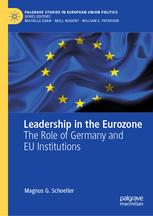
Leadership in the Eurozone: The Role of Germany and EU Institutions
Magnus G. Schoeller
Leadership of powerful states and organizations is crucial for the success of regional integration projects. This book offers a theoretical model explaining such leadership.
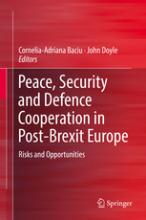
Peace, Security and Defence Cooperation in Post-Brexit Europe
Cornelia-Adriana Baciu, John Doyle
Highlighting the challenges and prospects of European security cooperation, this volume examines the impact of Brexit on strategic aspects of security, peace, defence and foreign policy.
Analyses the horizontal effect of fundamental rights before and after the entry into force of the EU Charter and provides an overarching narrative.
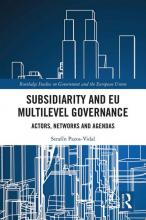
Subsidiarity and EU Multilevel Governance
Serafín Pazos-Vidal
This book examines the theory and praxis of the legal concept of subsidiarity and the policy paradigm of multilevel governance, providing an updated overview on how subnational and national authorities engage within the EU institutional framework.
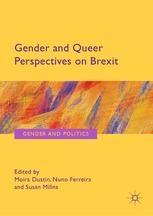
Gender and Queer Perspectives on Brexit
Moira Dustin, Nuno Ferreira, Susan Millns
This collection examines the opportunities and challenges, rights and wrongs, and prospects and risks of Brexit from the perspectives of gender and sexuality.
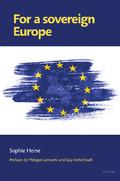
For a Sovereign Europe
Sophie Heine
While anti-European forces are still raging, pro-Europeans seem impotent and deprived of a strong, clear and convincing alternative. This book is an attempt to fill that void: reacting to the anti-European wave, it also outlines a strong criticism both of the current EU and of its advocates.
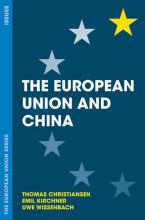
The European Union and China
Thomas Christiansen, Emil Kirchner, Uwe Wissenbach
An up-to-date and accessible introduction to EU-China relations. It explores the key aspects of the relationship and places it in the broader context of both of their roles on the world stage.
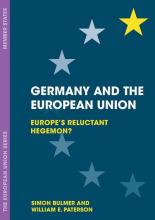
Germany and the European Union - Europe's Reluctant Hegemon?
William E. Paterson, Simon Bulmer
This new textbook offers a path-breaking interpretation of the role of the European Union’s most important member state: Germany.

Human Rights in the Council of Europe and the European Union
Steven Greer, Janneke Gerards, Rose Slowe
This book will enable the reader to distinguish clearly between those human rights norms which originate in the Council of Europe and those which derive from the EU.

Civil Rights and EU Citizenship
Sybe de Vries, Henri de Waele, Marie-Pierre Granger
This original edited collection brings together insights from EU law, human rights and comparative constitutional law to address this underexplored nexus.
This book examines the impact on member states of long-term foreign policy co-operation through the EU’s Common Foreign and Security Policy (CFSP).
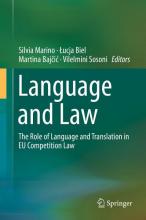
Language and Law: The Role of Language and Translation in EU Competition Law
Silvia Marino, Łucja Biel, Martina Bajčić, Vilelmini Sosoni
The book provides an overview of EU competition law with a focus on the main developments in Italy, Spain, Greece, Poland and Croatia and offers an in-depth analysis of the role of language.
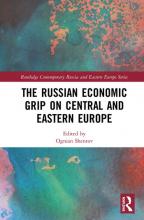
The Russian Economic Grip on Central and Eastern Europe
Ognian Shentov
This book is about the use of economic and state capture levers for achieving political clout.

EU-Japan Security Cooperation
Emil J. Kirchner, Han Dorussen
This book assesses EU-Japan security relations, examining how they have developed in individual security sectors and how they could be affected by international developments.
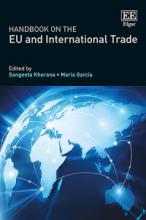
Handbook on the EU and International Trade
Sangeeta Khorana, María García
The Handbook on the EU and International Trade presents a multidisciplinary overview of the major perspectives, actors and issues in contemporary EU trade relations.
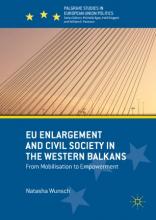
EU Enlargement and Civil Society in the Western Balkans
Natasha Wunsch
This book examines civil society empowerment during the EU enlargement process. Building on extensive fieldwork, it compares mobilisation around rule of law issues in Croatia, Montenegro, and Serbia.
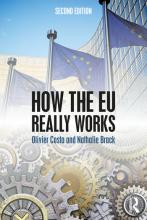
How the EU Really Works
Olivier Costa, Nathalie Brack
This book provides a concise analysis of the EU and its dynamics by paying particular attention to its day-to-day operation.
This book offers an in-depth, ground-up analysis of the attitudes and opinions of the rest of Europe towards Brexit.

Counter-Revolution, Liberal Europe in Retreat
Jan Zielonka
Can open society survive? Is Europe disintegrating? How to overcome the economic crisis? Will Europeans feel secure again? Counter-Revolution is a bold attempt to make sense of the extraordinary events taking place in Europe today.
Covers a modern period of EU gender equality policy that has not been full addressed previously Bridges disciplines by adopting a sociological approach to a research question on EU policy-making


